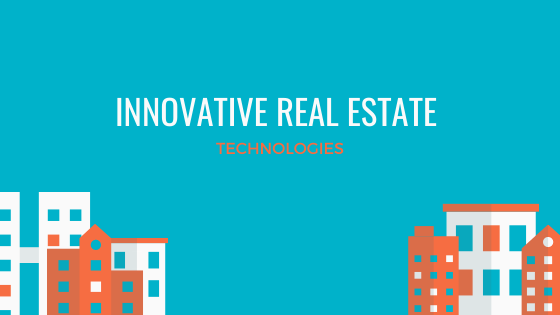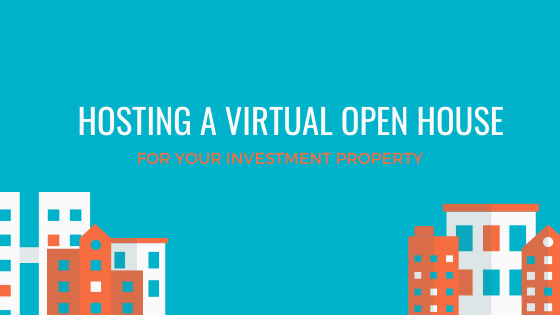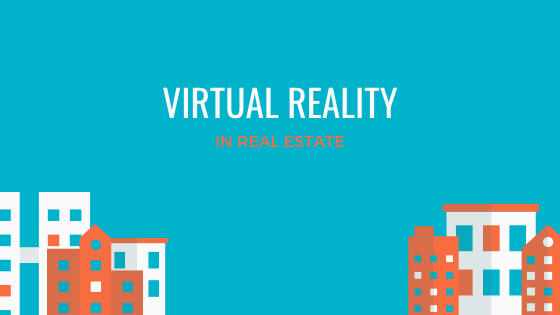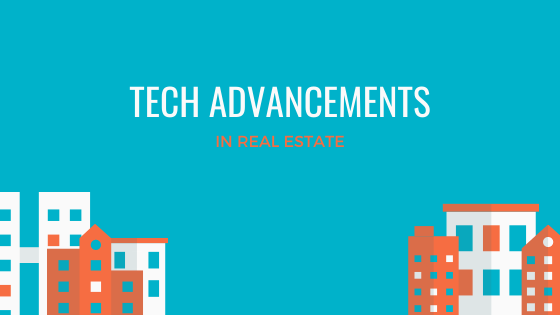
by Shawn Boday | Mar 17, 2021 | Real Estate, Real Estate Investing, Real Estate Tips, Washington
Technology is disrupting many industries. Even a sector as old as real estate is being affected. Here are some innovative real estate technologies that are changing the scene.
New Buy and Selling Platforms
Platforms like Redfin and Zillow are emerging. They’re making it easier for consumers to directly sell their house on their own, without an agent. “For Sale By Owner” (FSBO) was previously difficult to do but the advent of the internet changed things. Real estate has very high fees, typically 5-6% of the selling price. These new platforms can save sellers a lot of money.
Virtual walkthrough
Sometimes potential buyers are in a faraway city. Or they’re unavailable during an open house. Either way, they’d benefit from a virtual walkthrough of the property. This is easy to do with some low-cost apps available.
With the technology available today, you can stage a property by digitally adding furniture. You can also create realistic photos even before construction starts.
Drones
Drones have already found a couple of use-cases in society. For real estate, they can be used for aerial photography. A flyby would be a great way to get a feel for a neighborhood.
As of now, it’s difficult to move a drone around a tiny, enclosed place. This means drones aren’t good for exploring the interior of a house.
Artificial Intelligence
Currently, you can plugin to the MLS (or another real estate database) that you want a studio or a four-bedroom house. In the future though, AI will be able to make recommendations based on your values, personality traits, and preferences.
Chatbots are rapidly improving every year. They’ll be able to answer questions from customers. Eventually, they’ll be able to accompany clients to real estate showings. An agent might be able to take on more clients or lower their fees.
Big Data
Along with AI, big data will assist in making personalized recommendations. The more data a company has, the better it can make data-driven decisions.

by Shawn Boday | Jul 13, 2020 | Real Estate, Real Estate Investing, Shawn Boday, Uncategorized
The thought of a virtual open house for an investment property might seem strange or daunting to some. Why would a potential buyer watch a virtual open house when they can just visit the house in person? In fact, many modern buyers prefer watching a virtual open house through Facebook or YouTube. It allows them to view the property without ever leaving the house–and if it’s a live video, they can ask the realtor questions along the way. And for realtors, they have the advantage of showing a property to dozens or even hundreds of clients at once without dealing with a large crowd.
Which is Better: A Live Feed or a Recorded Video?
Outfront points out that there are two types of virtual open houses: the live feed where viewers can watch the open house as it’s happening, and the recorded video where the realtor uploads a pre-taped video. Both options have their own set of advantages. With a live feed, potential buyers can ask the realtor questions as they walk through the house. A live video also creates a sense of excitement about the property. When people watch a live video, they feel like they’re actually tuning into an event, like a concert or a sports program.
A pre-taped video loses the excitement factor, but it gives the seller the chance to put together a professionally edited video that makes the property look as appealing as possible. It’s also a good option for sellers who aren’t comfortable talking to people in front of a live camera feed.
How Does a Seller Generate Leads Through Virtual Tours?
With traditional in-home tours, it’s easy to collect contact information and follow up with potential buyers. A virtual open house has no sign-up sheet, so it can be difficult for sellers to get potential leads. Reminder Media recommends ending the tour with a call to action, asking potential clients to submit their contact information. A seller could also set up an online form on their website, making it easy for buyers to get in touch with them. Once they get that information, the seller can send an email with all the details about the property and answer any questions they received.

by Shawn Boday | Jun 17, 2020 | Real Estate, Real Estate Investing, Real Estate Tips, Shawn Boday
Traditional real estate has been turned upside down by the introduction of virtual technology that assists home and commercial buyers and sellers.
Real estate, once considered a transaction resulting from a personal relationship between agent and seller, was already changing before the COVID-19 pandemic, but it is evolving now more than ever.
The benefits of virtual reality (VR) in real estate include the following:
(1) Distance is irrelevant.
Are you thinking of becoming a snowbird and looking for a home in Florida while living in Pennsylvania? Instead of booking multiple trips, you can narrow down the neighborhoods and homes you are interested in online from the comfort of your home.
(2) Properties under development come to life.
Design of commercial properties has always been guided by architectural drawings and two-dimensional mock-ups. Now, VR allows three dimensional views and makes it easier for buyers to request and implement timely changes because they are able to see the building in a more realistic view.
(3) VR is cost effective.
Yes, the technology costs money, but it quickly pays for itself. Consider the popular app called RoOomy. It allows for virtual staging.
According to Thinkmobiles.com, since 1985, real estate agents have been actively staging homes. Staged houses sell in 80% less time and often for higher prices.
RoOomy opens the staging process to the homeowner and allows the person to visualize how the house could be furnished to best meet his or her needs and preferences.
Because it is technology-based, the components can be reused. Gone are the days of the realtor dragging pictures, plants, and decor from a sold home to the next house for sale.
V-commerce goes one step further and allows the homeowner to purchase the actual piece that he or she has virtually staged in the home.
With so many benefits, it is hard to believe there are people who are not sold on the VR real estate experience.
Sam DiBianchi, founder of DiBianchi Real Estate in Fort Lauderdale, Florida tells Fortunebuilders.com,“Real estate is personal. Technology cannot get personal with a potential buyer or seller–it’s impossible.”
DiBianchi adds that VR is an excellent tool, but he believes it should be used as a tool and not be the all-encompassing real estate experience.

by Shawn Boday | Mar 18, 2020 | Real Estate, Real Estate Investing, Real Estate Tips, Shawn Boday, Uncategorized
While every field is impacted in some capacity by technological advances, it could be argued that real estate has the longest history of shifting in new directions when technology advances. Today, technology impacts every aspect of the real estate process. Before a buyer even contacts a real estate agent to look at the house, they can take a long look at the neighborhood, thanks to satellites. It has been reported that 70% of buyers look for homes online before they begin shopping. Technology continues to alter the way that we buy and sell real estate.
Blockchain
While many people see the blockchain as a way to potentially support cryptocurrency, but it may have even more practical applications in real estate transactions. Real estate contracts between sellers and buyers can be done with complete encryption protection and security checks that are built into the programming. Blockchain ledgers even provide the opportunity to securely save property title logs and other documents that are needed to complete a real estate transaction.
Artificial Intelligence
While AI sounds intimidating to some people, it can provide the opportunity for both potential buyers and their agents to streamline their shopping process. Recent advancements have created a way for prospective buyers to get a real-life, 3D look inside a home they may be interested in without having to schedule a showing, meet with their agent and drive an unknown amount of miles to get to the address. Not only is this a great deal for buyers who may have a hard time getting their schedules to work out, but it also frees up agents who may be juggling multiple clients.
CRM Software
Since the dawn of real estate, agents have utilized some CRM to keep up with contact information for various clients. Modern tech advances have enabled agents and brokers to plug a client’s information into their CRM and even send them an automated e-mail every so often to touch base and see where they’re at in their decision-making process. While this may sound minimal, not having to make a dozen phone calls a day to people who may not be committed to buying or selling is enormous for real estate professionals.
by Shawn Boday | Apr 10, 2018 | Home Buying Process, Housing Market, Millennials, Real Estate, Real Estate Tips
We all remember scanning the newspaper when we were kids and seeing local real estate agents advertising alongside family-owned restaurants and used car dealerships. At the top of these old ads, you probably remember seeing a head-shot of a smiling real estate agent, inviting you to look at the homes they were listing. Below this picture, there’d be small thumb-sized photos of ranches, bungalows, and mansions with pricing information and listing details printed out in minuscule font under each picture.
You probably didn’t think about it then – because who knew any better at the time – but what an impersonal and ineffective way to sell homes! Would you feel comfortable finding a good home for yourself if all you had was that small picture and those limited details to go on?
It’s no surprise, then, that social media platforms and home buying websites have transformed the real estate industry over the past few years.
Real estate agents who are interested in building a customer base with millennial home buyers have begun utilizing YouTube and Instagram to appeal to young families and upwardly mobile professionals.
For example, innovative real estate agents have begun posting entire photo albums of glamorous hi-res photos of the various homes they have available on their personally branded Instagram account. These real estate agents use things like hashtags to target Instagram users who want to move to a particular neighborhood.
Another huge benefit of using a social media network like Instagram to advertise homes is that people from all over the world are using Instagram. It’s never been easier to sell to buyers outside of a real estate agent’s particular area.
YouTube has also become a hotspot for real estate agents looking to add another visual dimension to their listings. The agents who are most effectively using YouTube are doing virtual house tours where they walk through a home with a video camera and a tripod. A video works well because it shows off the size of rooms and bathrooms much more effectively than traditional photographs do.
Another intriguing way that sellers are showing off homes to buyers is that they are using hand-held drones to take aerial footage of how a property looks from above. These aerial videos are so much more captivating than the thumbnail photos real estate agents used to rely on to make a purchase.




